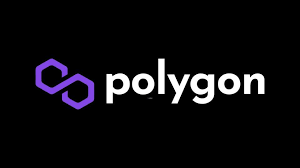
Polygon Labs development team officially kicks off the much-anticipated Polygon 2.0 implementation. This major step forward was heralded by a recent tweet from the team, revealing the launch of three Polygon Improvement Proposals (PIPs) and offering a glimpse into Phase 0 of this ambitious upgrade.
In their tweet, Polygon Labs was quick to remind us that the roadmap for Polygon 2.0 was unveiled back in July.
The overarching goal of Polygon 2.0 is nothing short of revolutionary—it aims to create the “Value Layer of the Internet” within the Ethereum block space.
The team envisions this feature as the key to unlocking boundless scalability and seamless liquidity across the network.
However, Polygon’s transformation into this visionary future requires a comprehensive upgrade of its protocol architecture. And this is where Phase 0 comes into play, serving as the pivotal starting point for this exciting journey.
Let’s take a closer look at what Phase 0 entails. It revolves around four crucial upgrades to the Polygon protocol, each playing a pivotal role in shaping its future.
First on the list is the transition from the MATIC native token to POL, a move set to kickstart the transformation process.
Next, POL is slated to become the gas token for the Polygon proof-of-stake (PoS) blockchain, making it an integral part of the network’s operations.
But the journey doesn’t stop there. POL is also set to become the staking token for PoS, emphasizing the importance of this token in securing the network.
The fourth and final step in Phase 0 introduces the Staking Layer, designed to enable validators to safeguard multiple chains within the evolving Polygon 2.0 ecosystem.
The timeline for these exciting upgrades is equally noteworthy, with implementation scheduled to commence as early as Q4 of this year.
However, it’s important to note that the successful execution of these changes hinges on the support and endorsement of the Polygon community.
For those concerned about how these initial changes might impact them directly, Polygon Labs offered reassuring news: these adjustments outlined in the first three PIPs won’t immediately affect end-users.
Instead, this marks an invitation for the community to actively participate in the transformation journey, contributing to the development and evolution of Polygon 2.0.


